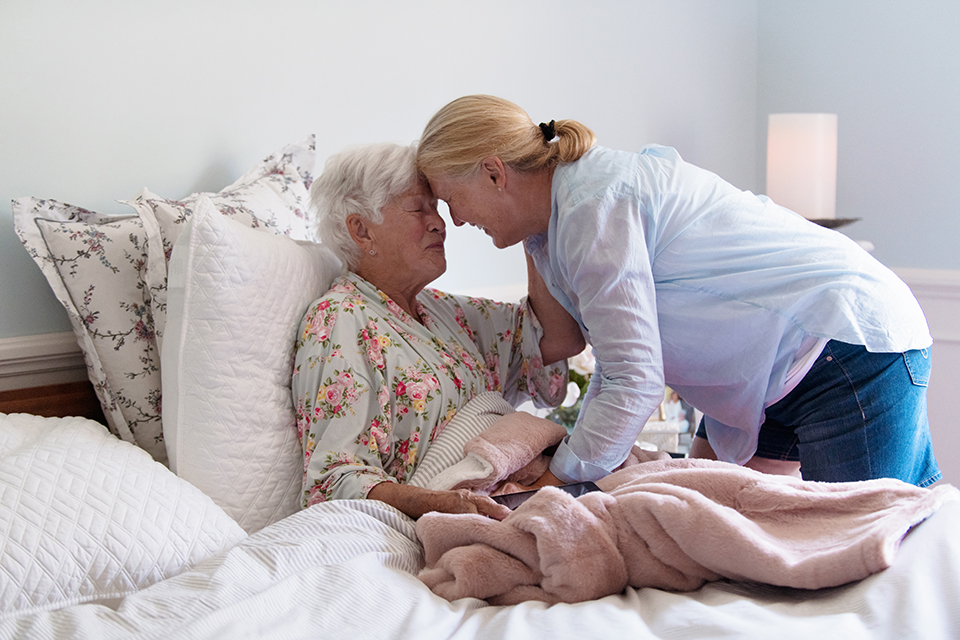NYC New York Hospice Care: How to pay for Hospice Care, Licensing and Regulations, and Questions to ask
As the center of world commerce and culture, New York City requires no introduction. New York is home to some of the finest dining and entertainment anywhere in the world. Situated on one of the world’s largest harbors and extending into the Atlantic ocean, New York City comprises five boroughs each with their own character and charm. Anyone interested in being in the hub of culture and life comes to New York to experience the richness of the city. One of the most famous and populous cities in the world, New York is a beautiful location for those looking at senior living and care.

- NYC New York Hospice Care: How to pay for Hospice Care, Licensing and Regulations, and Questions to ask
- About Hospice in New York City
- Considerations When Looking for Care in New York City
- Cities Near New York City
- Local Hospital and Healthcare Providers
- Local Resources and Links
- Signs it may be time to look into hospice care
- What is Palliative care and respite care and how are they different from hospice?
- How to pay for Hospice Care?
- Who Pays for Palliative Care?
- Questions about Hospice Care
- Search other areas for Hospice Care
Signs it may be time to look into hospice care
- Your loved one has made multiple trips to the emergency room.
- The condition continues to progress, affecting quality of life.
- The individual has been admitted to the hospital several times in the last year with the same or worsening symptoms.
- Does loved one wish to remain at home, rather than spend more time in the hospital.
- Your loved one has decided to stop receiving treatment.

What is Palliative care and respite care and how are they different from hospice?
Let’s discuss what makes them different:
Palliative Care
Palliative care refers to any care that alleviates symptoms, whether there is hope of a cure by other means or not. Both palliative care and hospice care are intended to provide comfort for the individual and family. This care focuses on easing pain and discomfort to help people have the highest possible quality of life. It is appropriate at any stage of life, not just end of life.
Respite care
Taking care of a loved one who is terminally ill can be exhausting and emotionally draining for family members, and especially if family members are the caregivers. Respite care provides relief for those looking after the terminally ill individual. They may be checked into temporary hospice and provide a much needed break for family caregivers.
Hospice
Hospice care is an option for people who have a life expectancy of six months or less. In place of ongoing curative measures, hospice involves palliative care (pain and symptom relief), enabling the individual to live their final days with purpose, grace, dignity, and support from family and staff. The purpose is for the individual to spend their final days in a comfortable, familiar environment, with their loved ones enabling them to focus their attention with help of staff. Some hospitals, nursing homes, and other health care facilities offer hospice care on-site – however, it is most often provided in the person’s home.
About Hospice in New York City
Anyone interested in being in the hub of culture and life comes to New York to experience the richness of the city. There are benefits for seniors in New York, which add to the appeal. Social security, Medicare, Supplemental Security Income, and the Senior rent increase exemption are all added benefits of being an aging adult in New York. New York’s population is over 8 million, about 15% of which are seniors and retirees. It is understood that as seniors and retirees continue to age, some may require care at some point. Unseen illnesses may interrupt life or ongoing symptoms can cause an abrupt change in diagnosis. New York hospice care is a concept of care, not a specific place of care. It is for those who have been living with a terminal illness or only recently received a serious diagnosis of six months or less life expectancy. This specific type of care is there to ease the burden of 24-hour care. It provides a respectful, comfortable care setting for your loved one’s final months and weeks or days. It is an option to consider and can be especially helpful for families, or those seniors without family to provide end-of-life care. In New York State, hospice rules are set to ensure safety and health for people diagnosed with a life expectancy of six months or less. All operating hospices are regulated under Article 40 of the Public Health Law. Hospice care in New York is licensed by the New York Department of Health, Licensing Board.
Considerations When Looking for Care in New York City
In New York City, the summers are warm, humid, and wet; the winters are very cold, snowy, and windy; and it is partly cloudy year round. Over the course of the year, the temperature typically varies from 28°F to 85°F and is rarely below 14°F or above 92°F.
8.468 million people call the many districts and neighborhoods of NYC home. There are thousands of communities to find and there are nearly 90 hospice care providers.
Hospice Communities near New York, New York
Caring Hospice Services Of New York, Llc
Brooklyn, New York 11229
Parker Jewish Inst For Health Care & Rehab Chha
Queens, New York 11040
Calvary Hospital Chha
The Bronx, New York 10461
Holy Name Home Care
Teaneck, New Jersey 07666
Barnabas Health Home Care And Hospice
West Orange, New Jersey 07052
Visiting Health Services Of New Jersey
Woodland Park, New Jersey 07424
Atlantic Visiting Nurse
Morristown, New Jersey 07960
Bayada Home Health Care Inc
North Bergen, New Jersey 07047
Visiting Nurse Association Of Englewood, Inc
Englewood, New Jersey 07631
Valley Home Care Inc.
Paramus, New Jersey 07652
Cities Near New York City
- Yonkers – 17 miles north
- Newark NJ – 11 miles west
- Port Washington – 24 miles east
- Staten Island – 17 miles south
How to pay for Hospice Care?
Medicare, private health insurance, and Medicaid (in 43 states) covers hospice care for patients who meet eligibility criteria.
Private insurance and veterans’ benefits may also cover hospice care under certain conditions. In addition, some hospice programs offer healthcare services on a sliding fee scale basis for patients with limited income and resources. To get help with your Medicare questions call 1-800-MEDICARE (1-800-633-4227) or visit www.medicare.gov. Additional information about how to pay for hospice care can be found at the Public Policy Institute of the AARP.
Who Pays for Palliative Care?
Medicare, Medicaid, many insurers, and healthcare plans will cover the medical portions—physician and nurse services—of palliative care.
Veterans may be eligible for palliative care through the Department of Veterans Affairs. Check with your doctor and healthcare plan to see what insurance will cover in your particular situation. Unlike the comprehensive hospice benefit, there is no comprehensive palliative care benefit.
Questions about Hospice Care
Is Hospice only for those who have cancer?
No. It is for anyone with a terminal illness who has been given a prognosis by their doctor of six months or less.
Do only elderly people use these services.
It is for all age groups during the final stages of their life. The intention is to allow people to enjoy the closeness of family and a comfortable environment in the last stages of their life.
Do people on hospice die immediately?
This care does not hasten death. Though, studies have shown people often live longer than those with the same or similar illnesses who do not choose hospice.
Are all hospices the same?
The United States offers thousands of hospices. Most engage in Medicare, which requires certain services for the person in care. So, there is a standard operating procedure.
How can I afford Hospice care? Is it expensive.
Hospice care is covered by Medicare Part A, and your personal insurance.
Is Hospice is only provided in the individual’s home?
NO, Care is provided wherever the person is, which could be a long-term care facility or a hospital. Being take care of at home is always an option.
Local Hospital and Healthcare Providers
NYC Health + Hospitals/Metropolitan.
1901 1st Ave.
New York Presbyterian Hospital
520 E 70th St
The Mount Sinai Hospital
1468 Madison Ave
New York Presbyterian Hospital
21 Audubon Ave
NY-Presbyterian Hospital
1305 York Ave
Local Resources and Links
Adult Protective Services The New York State Office for the Aging’s (NYSOFA’s) home and community-based programs provide older adults with access to a well-planned, coordinated package of in-home and other supportive services designed to support and supplement informal care. NYSOFA’s overall goal is to improve access to, and availability of, appropriate and cost-effective non-medical support services for older individuals to maximize their ability to age in their community and avoid higher levels of care and publicly financed care. NYSOFA achieves this through our network of 59 area agencies on aging. This network provides the following core services in coordination with local partners
New York State Office of Children and Family Services Bureau of Adult Services We accomplish these goals by partnering with hundreds of community-based organizations to provide services through older adult centers, naturally occurring retirement communities, case-management and home-care agencies, home-delivered meal programs, mental health and friendly visiting programs, and much more in each borough.
Legal Services NYC Legal Services NYC fights poverty and seeks racial, social, and economic justice for low-income New Yorkers.
Health Insurance Information Counseling and Assistance Program (HIICAP) HIICAP counselors help seniors and their caregivers to understand Medicare and other health insurance options and benefits.
Eldercare Locator This is a great resource to search for specific care in specific counties and cities. This database is a nationwide resource that connects older Americans and their caregivers with trustworthy local support resources. Connect with services such as meals, home care or transportation, or a caregiver education or respite from caregiving responsibilities. The Eldercare Locator is a public service of the Administration on Aging (AoA), an agency of the U.S. Administration for Community Living.
Medicare provides a search feature to find & compare providers near you, most senior housing and care providers are included on CareAvailability.com. Find & compare plans in your area. Determine if you qualify for premium savings
Medicaid offers information on how to apply for Medicaid, eligibility criteria, links to local state offices, and additional resources
The Alzheimer’s Association is the leading voluntary health organization in Alzheimer’s care, support, and research. Whether you are living with Alzheimer’s or caring for someone with the disease, information and resources are available.
Search other areas for Hospice Care
Not finding what you’re looking for? Take a look below.
